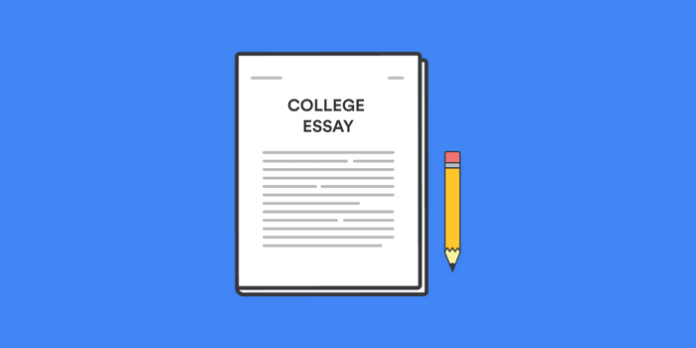The day you dreaded the most has finally come. You no longer have to make your essays longer – you have to trim them down. Once you get to college, your professors will expect you to get to the point earlier. So, naturally, they’ll want your essays to be shorter. Thankfully, we don’t have college professors grading our writing, so, we can drag out this intro for as long as we can.
All jokes aside, we’re not here to step on your toes – we’re here to help. Today, we’re going to share a few essay-writing tips with you. More precisely, we’re going to teach you how to make your essays shorter. Let’s begin!
1. Use The Tools At Your Disposal

We live in the golden age of technology, which means there are so many tools that we can rely on to improve various aspects of our lives. When it comes to writing, there are tools like Grammarly that will analyse your essay, highlight the mistakes, and recommend the solution, but there are also others that you could rely on.
For instance, HomeworkHelpGlobal will offer custom essay writing services for everyone, regardless of the topic. All you’ll have to do is click a few things, and in a few days – you’ll have your essay ready and within the word count without having lifted a finger.
On the other hand, if you want to hone your own skills and learn how to cut the extra words out of your essays on your own – you’ll do the following.
2. Cut The Adverbs
Take a really good look at your essay, and count all the “very” and “-ly” words, such as, really, absolutely, extremely, and others, and ask yourself this – do you really need them? See what we did there?
Adverbs can be useful, but only if they’re there to enhance your point. Otherwise, they’re redundant.
Take a look at the following sentence:
She quickly ran out of the meeting.
Is there anything you’d change about it? Do you really need the “quickly”? Sure, you’re emphasising that she left the meeting in a hurry, but is there a better way to say it? If you ask us, “She bolted out of the meeting” paints the exact same picture – but in fewer words.
So, read your sentences, revise them, and if possible, remove the adverbs or change the wording.
3. Cool It With The Adjectives

Unless you’re writing a Russian classic or painting a vivid picture – you don’t really need to use that many adjectives. Just like adverbs, they’re good if they’re adding to the overall scene, but most of the time – they’re redundant.
Instead, try and use the stronger nouns.
The English language has over 170,000 words, making it one of the richest languages on the planet. However, an average person uses only twenty or thirty thousand, so, step up your game. Turn your “very sad” into “woeful”, and your “very brave” into “valiant”, or “heroic”, and you should be golden.
4. Lose The Transition Words And Phrases
Because of the way we talk, it can be quite hard for us to write in a comprehensive way without using the transition words and phrases like “now”, “in fact”, “ultimately”, “quite frankly”, “namely”, and so on. However, these words and phrases can be easily avoided if you can manage to organize your thoughts, and write your sentences in a fluid manner.
To get rid of these, read your essay, highlight the transition words, and figure out the way to cut them out. Sometimes you won’t even have to change anything other than delete the extra word. Other times, you might have to turn a few things around the keep the flow, but that’s just what you have to do.
5. Reduce The Use Of Auxiliary Verbs

Auxiliary verbs like “am”, “have”, “should”, “be able to”, and others, are often the main reason why your essay is longer than it should be. An easy way to get past this issue is by using a stronger verb. It won’t always be easy to find an appropriate replacement for your aux, but you have to try if you want to submit your essay.
For instance, “He learns fast” delivers the exact same message as “He is a very was learner”, but instead of six, you’ve only used three words.
6. Turn Nouns Into Verbs
English speakers have this nasty habit of using nouns instead of verbs. To be fair, that’s not a major error under any circumstances, but it will create problems for you if you have to write a short essay.
Here’s an example. Some college essays expect you to take a stand on a particular problem based on the evidence you’ve collected during the research. Most students, when they try to get their message across will say something along the lines of “I came to the conclusion”, in an attempt to sound as professional and objective as possible. However, you could’ve just said, or in this case wrote, “I concluded”, and it would’ve meant the same thing.
Here’s another example. “This victory was a symbol of…” could’ve easily been “This victory symbolised…”, and you would’ve saved three words.
7. Turn Passive Into Active

This might be hard to do, but turning passive voice into active will certainly save you a few words because nine times out of ten, you will need more words to write a sentence in passive voice. Don’t believe us? Here’s an example.
The battle was won by general McKinney.
General McKinney won the battle.
See? We wouldn’t lie to you.
8. Forget About “That”
“That” is the 8th most commonly used word in the English language, but unlike the first seven, most of the time, you don’t need “that” in a sentence.
Just read the sentence you wrote, and if it works without “that” – remove it. For example, we could’ve just written “read the sentence that you wrote”, but as you can so clearly see, it would’ve been unnecessary.
9. Use Contractions

If you can – use contractions. If you don’t have to sound too formal, you should take advantage of contractions to shorten your essay. Just don’t end up writing things like “shoulnd’t’ve” – that’s just uncanny.
Conclusion:
There you have it. Those were our tips for cutting the words out of your college essays. Hopefully, you’ve found them helpful.








